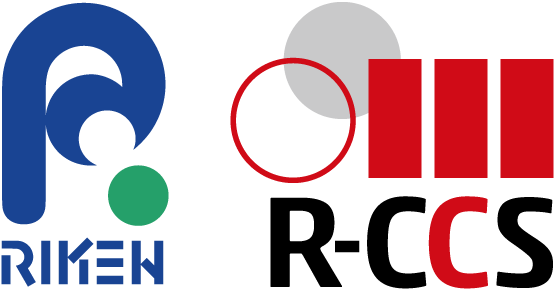
内野 佑基
UCHINO Yuki
連絡先:
yuki.uchino.fe (at) riken.jp
UCHINO, Yuki
CONTACT:
yuki.uchino.fe (at) riken.jp
内野 佑基(うちの ゆうき)は国立研究開発法人理化学研究所 計算科学研究センターの特別研究員であり,大規模並列数値計算技術研究チームと次世代計算基盤開発部門 次世代計算基盤システム開発ユニットに所属している. 2020年3月に学士号(数理科学),2022年3月に修士号(システム理工学),2024年3月に博士号(工学)を芝浦工業大学から取得した. 研究トピックは高信頼計算,数値線形代数,高精度計算である.
| メール: | yuki.uchino.fe (at) riken.jp | |
| 所属: |
理化学研究所 計算科学研究センター 大規模並列数値計算技術研究チーム, 理化学研究所 計算科学研究センター 次世代計算基盤システム開発ユニット |
|
| 住所: | 〒650-0047 兵庫県神戸市中央区港島南町 7-1-26 | |
| 身長: | りんご14個 | |
| 体重: | りんご230個 | |
| 所属学会: | 日本応用数理学会 (2022.07-), 情報処理学会 (2025.04-) | |
| トピック: | 混合精度数値計算, 数値線形代数, 精度保証付き数値計算 |
Yuki Uchino is a Postdoctoral Researcher in the Large-Scale Parallel Numerical Computing Technology Research Team at the RIKEN Center for Computational Science, and a Postdoctoral Researcher in the Next-Generation HPC Infrastructure System Development Unit of the Next-Generation HPC Infrastructure Development Division at the RIKEN Center for Computational Science. He received his B.S. in Mathematical Sciences in 2020, his M.S. in Systems Engineering and Science in 2022, and his Ph.D. in Engineering in 2024, all from Shibaura Institute of Technology. His research interests include reliable computing, numerical linear algebra, and highly accurate algorithms.
| Email: | yuki.uchino.fe (at) riken.jp | |
| Affiliation: | RIKEN Center for Computational Science | |
| Team/Unit: |
Large-Scale Parallel Numerical Computing Technology Research Team Next-Generation HPC Infrastructure System Development Unit |
|
| Address: | 7-1-26 Minatojima-minami-machi, Chuo-ku, Kobe, Hyogo 650-0047, Japan | |
| Pronoun: | he / him / his | |
| Memberships: | The Japan Society for Industrial and Applied Mathematics, Information Processing Society of Japan | |
| Interests: | Mixed-Precision Computing, Numerical Linear Algebra, Self-Validating Methods |
- 1997
-
1997/10/02
- 生まれました
- 2016
-
2016/04
- 芝浦工業大学 システム理工学部 数理科学科 入学
- 2020
-
2020/03
- 大学卒業 (総代・首席)
- 学士 (数理科学) 取得
2020/04
- 同大学院 理工学研究科 システム理工学専攻 修士課程 入学
- 2022
-
2022/03
- 修士課程 修了 (総代・首席)
- 修士 (システム理工学) 取得
2022/04
- 同大学院 理工学研究科 機能制御システム専攻 博士後期課程 入学
- 日本学術振興会 特別研究員 DC1 採用
- 2024
-
2024/03
- 博士後期課程 修了 (短縮)
- 博士 (工学) 取得
- 日本学術振興会 特別研究員 DC1 中途辞退
2024/04
- 国立研究開発法人理化学研究所 計算科学研究センター 大規模並列数値計算技術研究チーム 特別研究員 採用
- 2025
-
2025/04
- 情報処理学会 論文誌コンピューティングシステム(ACS)編集委員 就任
2025/09
- 国立研究開発法人理化学研究所 計算科学研究センター 次世代計算基盤開発部門 次世代計算基盤システム開発ユニット 特別研究員 兼務
- 1997
-
October 02, 1997
- Born
- 2016
-
April 2016
- Enrolled in Department of Mathematical Sciences, College of Systems Engineering and Science, Shibaura Institute of Technology
- 2020
-
March 2020
- Received B.S. in Mathematical Sciences
April 2020
- Enrolled in Systems Engineering and Science, Graduate School of Engineering and Science, Shibaura Institute of Technology (Master's Program)
- 2022
-
March 2022
- Received M.S. in Systems Engineering and Science
April 2022
- Enrolled in Functional Control Systems, Graduate School of Engineering and Science, Shibaura Institute of Technology (Doctoral Program)
- Appointed as Research Fellowships for Young Scientists DC1, Japan Society for the Promotion of Science
- 2024
-
March 2024
- Received Ph.D. in Engineering
- Resigned as Research Fellowships for Young Scientists DC1
April 2024
- Appointed as a Postdoctoral Researcher in Large-Scale Parallel Numerical Computing Technology Research Team, RIKEN Center for Computational Science
- 2025
-
April 2025
- Appointed as IPSJ Transactions on Advanced Computing Systems Editorial Committee Member
September 2025
- Appointed as a Postdoctoral Researcher in Next-Generation HPC Infrastructure System Development Unit, Next-Generation HPC Infrastructure Development Division, RIKEN Center for Computational Science
| Oct. 2024: |
Outstanding Presentation Award The 43rd JSST Annual International Conference on Simulation Technology |
|
| Mar. 2022: |
Student Presentation Award International Workshop on Reliable Computing and Computer-Assisted Proofs |
|
| Nov. 2021: |
Student Presentation Award The 40th JSST Annual International Conference on Simulation Technology |
|
| Nov. 2019: |
Student Poster Presentation Award The 38th JSST Annual International Conference on Simulation Technology |
|
Apr. 2025 - Mar. 2028 任意混合精度演算を基盤とする次世代浮動小数点数環境の構築 日本学術振興会 科学研究費助成事業 基盤研究(B) 25K03126 |
|
Jul. 2024 - Mar. 2026 固有値・特異値分解に対する高速・高精度・高信頼な数値計算手法の研究 日本学術振興会 科学研究費助成事業 研究活動スタート支援 24K23874 |
|
Mar. 2022 - Mar. 2025: 疑似多倍長演算による現代アーキテクチャに適した高速な数値計算アルゴリズムの創生 日本学術振興会 科学研究費助成事業 特別研究員奨励費 22J20869 22KJ2741 |


